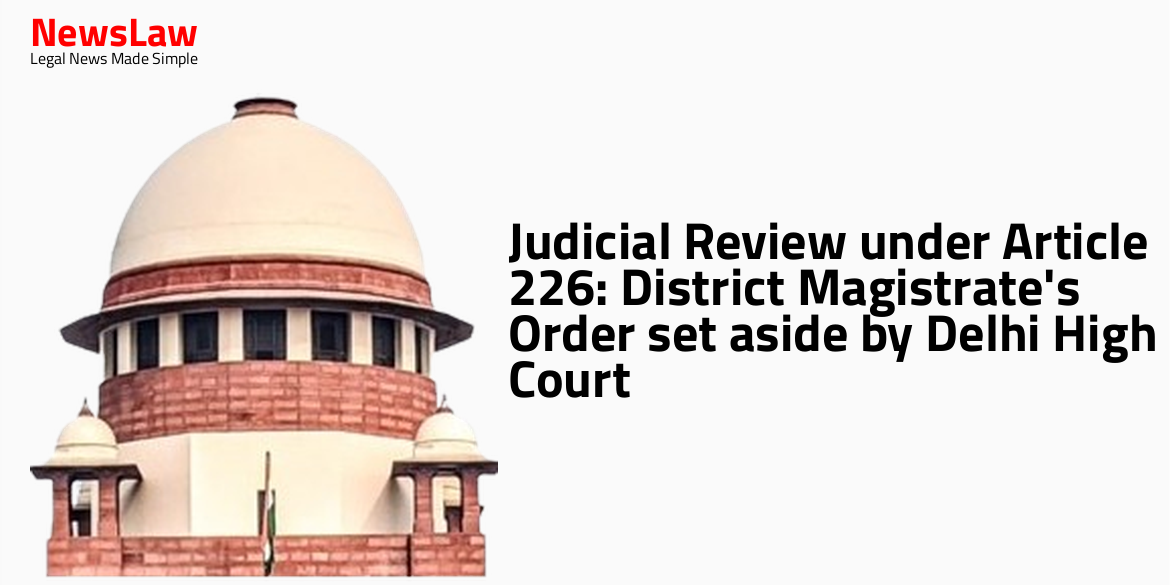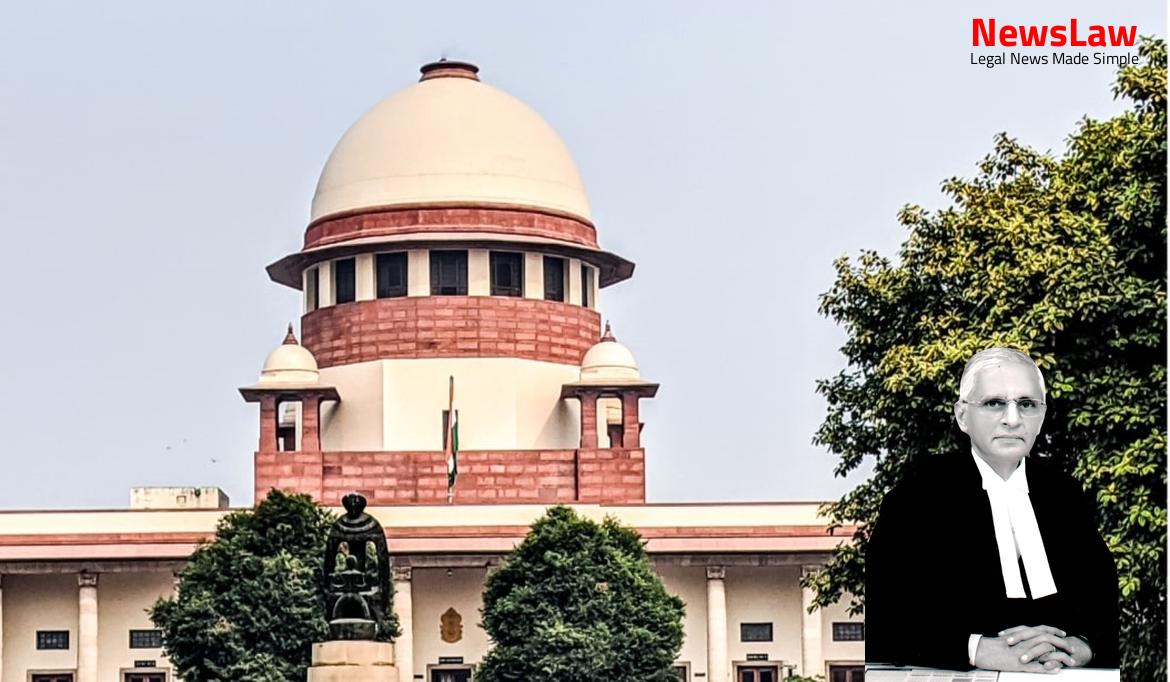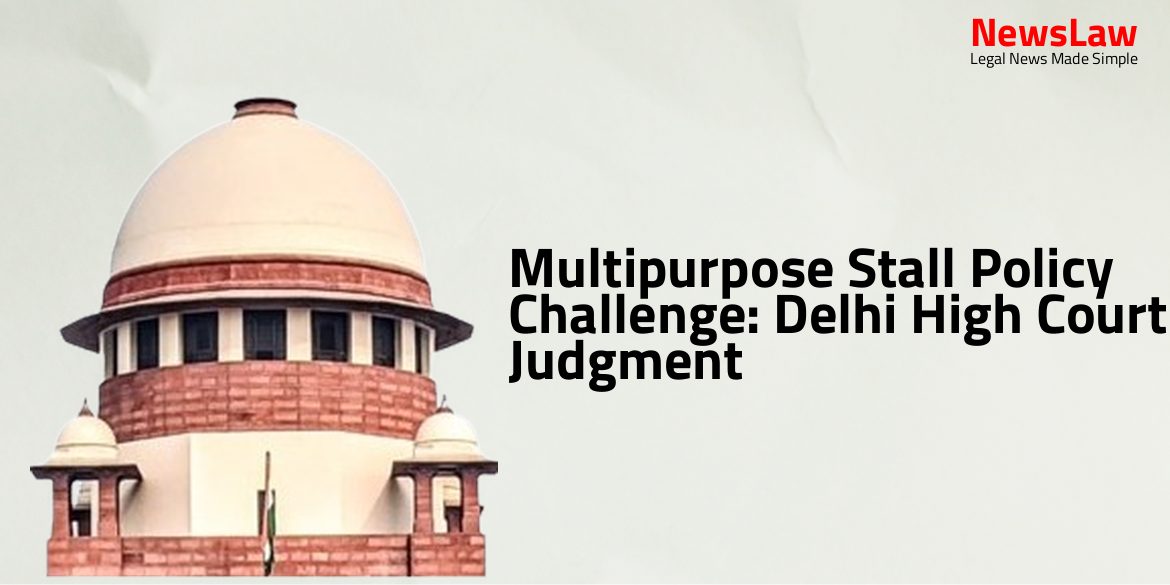In a recent ruling by the Delhi High Court, the order of the District Magistrate under the Senior Citizens Act has been set aside. The decision, which involves ensuring peaceful living for senior citizens, marks a significant development in the realm of property title disputes. The Court’s interpretation of constitutional provisions has paved the way for a thorough review of the Magistrate’s actions. Find out more about this crucial judgment!
Facts
- The District Magistrate’s order dated 28.03.2022 was set aside by the Petitioner.
- The Petitioner argues that the proceedings were not maintainable under the Senior Citizens Act.
- The Petitioner approached the Court based on this ground.
Analysis
- The jurisdiction of the authorities under the Senior Citizens Act is to ensure peaceful living for senior citizens without harassment.
- The authorities are not civil courts and cannot decide property title disputes.
- There are ongoing civil suits between the parties regarding the title of the subject property.
- The SDM’s inquiry was criticized for being inadequate and lacking proper investigation.
- The SDM should conduct thorough investigations with input from friends and neighbors.
- The purpose of the Senior Citizens Act is to guarantee maintenance and welfare for parents and senior citizens.
- The authorities have the right to address disputes under the Act and are not required to wait for civil court decisions.
- Matrimonial disputes should not be improperly used to advance eviction proceedings under the Senior Citizens Act.
- Summons for children or relatives residing outside India to be served by the Tribunal through specified authority.
- Tribunal empowered with the powers of a Judicial Magistrate of first class for securing attendance of children or relatives.
- Option to refer the application to a Conciliation Officer for an amicable settlement before hearing.
- Jurisdiction for proceedings under section 5 extends to districts where the child or relative resides.
- Process issued by the Tribunal to procure presence of the child or relative against whom application is filed.
- Evidence to be taken in the presence of the child or relative, with provisions for ex parte proceedings if willful avoidance or neglect is observed.
- The Court concluded that the Impugned falls under Article 226 of the Constitution of India.
- The Court’s opinion is that the Impugned action is subject to judicial review under Article 226.
- The Court’s decision is based on the interpretation of the relevant constitutional provisions.
Decision
- The writ petition has been dismissed
- Any pending application(s) have also been dismissed
- The decision is final and binding
Case Title: SUDESH CHHIKARA Vs. DISTRICT MAGISTRATE WEST DELHI AND ANR (2024:DHC:3675)
Case Number: W.P.(C)-1700/2024



